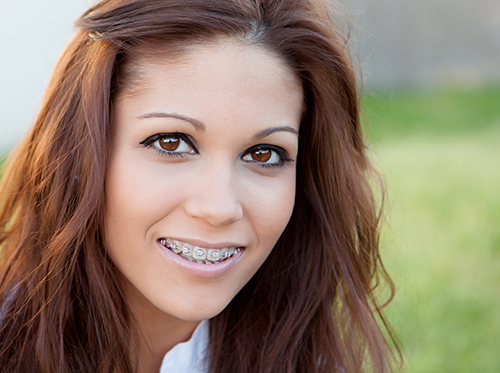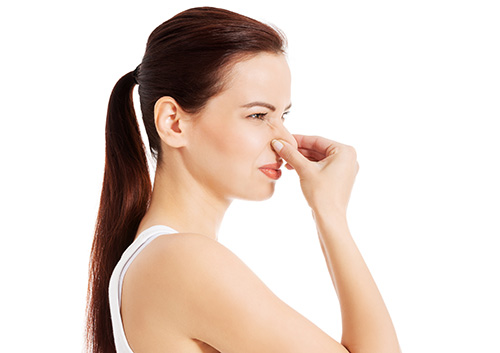March 20th, 2018

Clear aligners like Invisalign® have become increasingly popular over the past several years and rightly so. They’re removable, easier to clean than braces, and hardly anyone knows you're wearing them. They are great in treating many cases, but they aren't for everyone.
Below, Drs. Maoloni and Pope and our team cover some of the instances where clear aligners just aren't the answer:
- If drastic tooth movement is required – Fixed appliances deliver much more significant tooth movement. So if your case is a drastic one, clear aligners may not be the best choice.
- If you need to move molars – Molars have much stronger roots than your other teeth and would require significantly longer to move with clear aligners. A fixed appliance is the best choice in this instance, especially if you have a substantial overbite or underbite that needs to be dealt with.
- If you're the type who often forgets or loses things –If you would forget to wear your aligners for the prescribed amount of time (usually at least 22 hours per day), clear aligners are probably not the best choice for you. Forgetting to wear them can delay treatment and even make it so you need to regress to the previous set of aligners to be able to move forward with treatment. And let's face it, if you're not careful, removable aligners are easy to lose. Losing aligners delays treatment and is expensive since you need to buy replacements to stay on course. Replacing a lost set of aligners usually takes between seven and ten days—a definite setback in treatment.
- If you're looking for the fastest treatment possible – Clear aligners usually can't move teeth as quickly as fixed appliances. So if you're looking for the fastest way to achieve your desired result, clear aligners may not be the best bet.
Feel free to talk with Drs. Maoloni and Pope about your options regarding braces and clear aligners. We know there are pros and cons to both, so let’s find the option that works best in your life and for your specific needs in terms of treatment. Schedule an appointment at our Flossmoor and New Lenox, IL office today!
March 13th, 2018

On March 17, everyone has a little Irish in them. St. Patrick’s Day is a joyous celebration of Irish heritage. The holiday originated as a commemoration of Saint Patrick, who brought Christianity to Ireland. The saint arrived in Ireland in 432 and earned the reputation of a champion of Irish Christianity. March 17th, the day of St. Patrick’s death, has been commemorated by the Irish for over 1,000 years. St. Patrick’s Day is still observed as a religious feast day by several Christian denominations, but it is better known in the public imagination as a rich celebration of Irish culture.
St. Patrick’s Day has been an official public holiday in Ireland since 1903. Each year, the Irish celebrate with a several-day festival that includes theater performances, music, fireworks, and festive parades. The celebration is also a public holiday in Northern Ireland, Montserrat, and Newfoundland and Labrador. In other parts of the world with heavy Irish populations, it is an unofficial celebration of Irish heritage. Parts of Great Britain, Canada, Argentina, South Korea, Switzerland, New Zealand, the United States, and Australia commemorate the holiday each year. Typical celebrations in these countries include drinking green beer, wearing green, eating traditional Irish foods, parades, and shamrock decorations.
Many people, Irish and non-Irish alike, take part in the “wearing of the green” on St. Patrick’s Day. In fact, the color originally associated with Saint Patrick was blue. His use of shamrocks to explain the Holy Trinity to the Irish made the green clover emblematic of the holiday, leading to the traditional green attire worn by thousands on St. Patrick’s Day. Other little-known facts about St. Patrick’s Day include the following:
- Each year, the United States and Ireland face off in a rugby competition called the “St. Patrick’s Day Test.”
- Montreal celebrates the holiday with an annual parade, which has been held each year since 1824. The Montreal city flag even features a shamrock in its corner, as a nod to its Irish heritage.
- The Guinness World Records named St. Patrick’s Day the “Friendliest Day of the Year.”
- Along with Valentine’s Day, St. Patrick’s Day is one of the most widely celebrated saint’s day in the world.
No matter your cultural heritage, St. Patrick’s Day is a great time to let loose and celebrate your inner Irish-ness! Don your greenest attire and exclaim “Erin go Bragh!” (Ireland forever!) to everyone you meet. From Drs. Maoloni and Pope - have a great St. Paddy’s day!
March 6th, 2018

Halitosis is the fancy, scientific word for “bad breath.” Drs. Maoloni and Pope and our team know there are several reasons why you may have halitosis; let’s look at a few:
- Gum disease (also known as periodontal disease) – There are five main types of gum disease, and each one can range from mild to severe. For example the most common one is gingivitis; it is caused by bacteria in the plaque that has been allowed to build up, usually as a result of poor oral hygiene. A more serious and uncommon type of gum disease is called necrotizing periodontal disease. It is most common in people who have a suppressed immune system.
- Smoking
- Dry Mouth – This can be caused by something as simple as a medication you take.
- Food – Of course, if you eat something that is potent like garlic, it is going to give you bad breath.
- Diseases of the Body – Some diseases such as sinus infections and diabetes, among a few other types of infections, can also cause you to have halitosis.
How to Get Rid of Halitosis
The most obvious answer to how to get rid of halitosis is to practice good oral hygiene, although, depending on the cause of halitosis it may not be that simple. If you have an infection that is causing the halitosis then you may need an antibiotic to clear up the infection and then the bad breath will go away. Here are more tips:
- Brush your teeth after every meal and before bed.
- Floss your teeth. The more plaque you get out of your teeth, the better chance you have of not getting cavities or bad breath.
- Address any medical conditions that are not related to your teeth that can be causing the halitosis.
- Ask Drs. Maoloni and Pope for a prescription mouthwash that kills bacteria.
Halitosis (bad breath) can be an embarrassing condition to live with, but there are plenty of ways to get rid of it permanently. Start by talking to a member of our team at our Flossmoor and New Lenox, IL office.
February 27th, 2018

So, you just got your braces on, and you're wondering why you should continue visiting your general dentist since you’re seeing Drs. Maoloni and Pope every other month. Patients always ask us if they should continue to see their dentist while in orthodontic treatment. In short, the answer is yes.
Today, we thought we would share a few reasons why it’s crucial to keep up with your regular visits with your dentist in addition to coming in for your regular adjustments at Orthodontic Associates, LTD..
One of the best reasons to visit your dentist while you undergo orthodontic treatment is to remove plaque and tartar. Having braces provides additional nooks and crannies in which food particles and bacteria can hide. Eventually, plaque and tartar can form around your brackets, bands or other appliances which can lead to cavities. Having your teeth professionally cleaned can help ensure most, if not all, plaque and tartar is removed. Even if you are undergoing clear aligner treatment, dental checkups and cleanings are equally as important.
The next reason to visit a dentist is to help protect your teeth from decalcification, or the loss of calcium in your teeth. A potentially serious condition in which white spots on your tooth surfaces, decalcification is irreversible and if left untreated, can lead to cavities. Decalcification is preventable; patients who cut down on sugary sweets and acidic foods, practice good oral hygiene, and visit their dentist regularly can help prevent decalcification.
The final reason we recommend visiting your dentist while you have braces is this: cavities can prolong your treatment. If you are interested in completing your orthodontic treatment on time and without any delays, visiting your dentist every six months or as recommended can go a long way toward making that a realistic goal. Your dentist can provide fluoride treatments or other treatments that strengthen your teeth and protect them from cavities.
Making sure to visit your dentist will help ensure your teeth look their best once your braces come off. If you do not have a general dentist and would like a recommendation on finding one in the Flossmoor and New Lenox, IL area, please give us a call or let us know at your next adjustment appointment!






 Website Powered by Sesame 24-7™
Website Powered by Sesame 24-7™